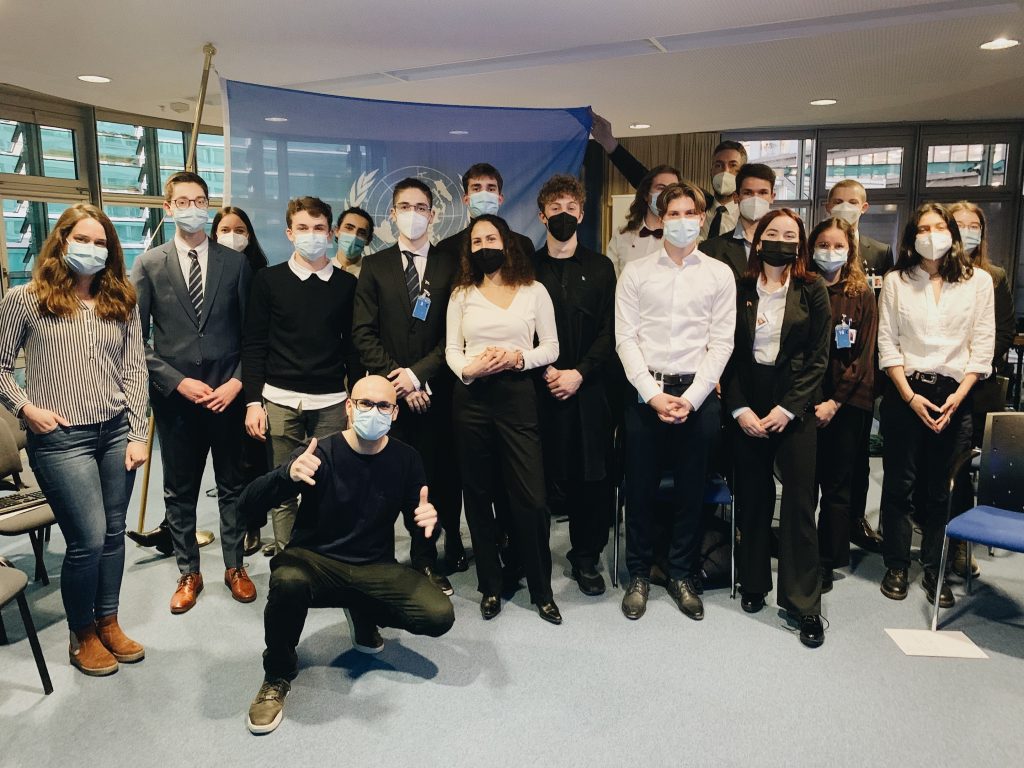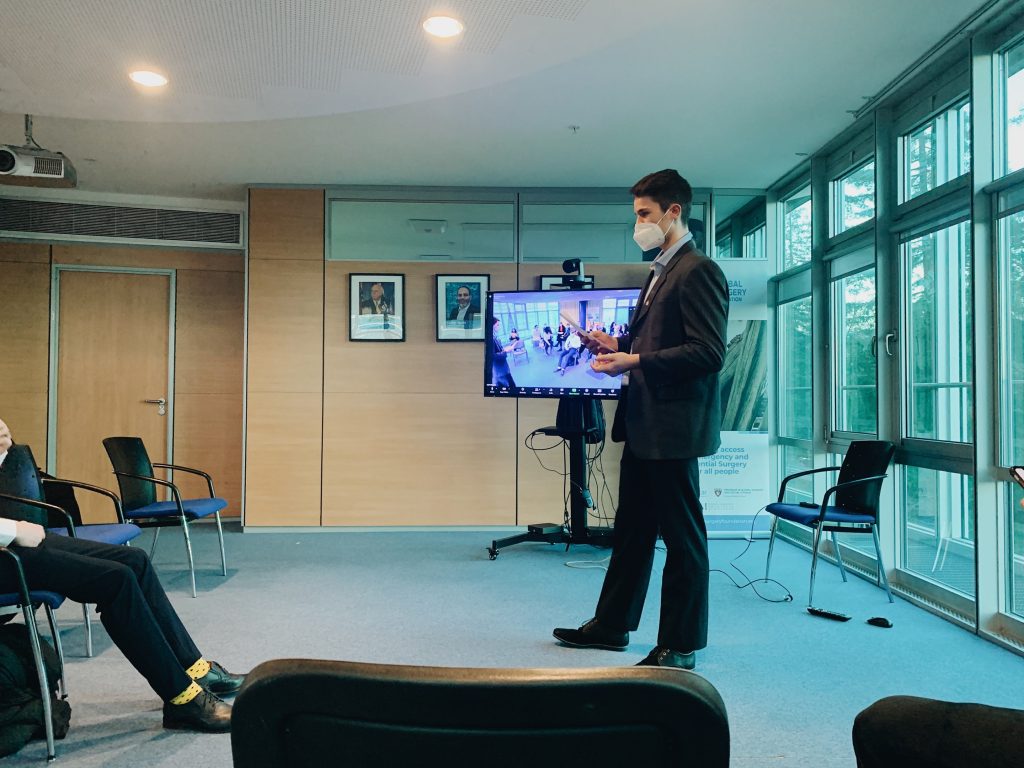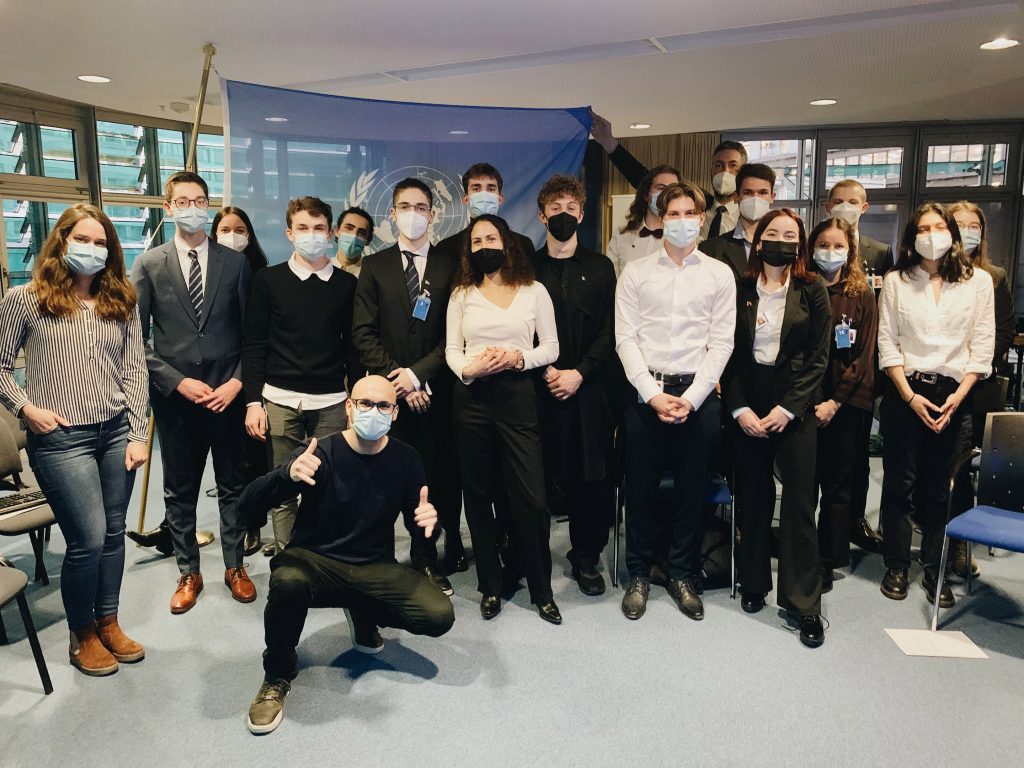On 9 February 2022, a group of 17 students from Kantonsschule am Burggraben St.Gallen, in Switzerland, visited the United Nations Institute for Training and Research (UNITAR) headquarters in Geneva and took part in a 2-hour session with UNITAR staff. The students’ visit was part of an annual field trip to International Geneva, during which they visited other international organizations and participated in a three-day UN simulation aimed at empowering the students with the skills they need to be responsible global citizens.
The visit to UNITAR kicked off with a broad overview of the organization given by Ms. Jaqueline Herodek of the UNITAR Communications team. She explained the role the organization plays in contributing to the 2030 Agenda, how the organization is structured and what are its key objectives. In addition, she also showcased UNITAR’s programmes and answered questions from the students about the organization.

The students at UNITAR HQ.
This first introductory part was followed by a round of presentations on professional backgrounds, careers and skills needed by UNITAR and other international organizations, that were delivered by Mr. Oliver Wootton, Ms. Alina Koch, and Ms. Katharina Sill. Firstly, Mr. Wootton explained how he went from studying business to working with chemicals and waste management, and the steps he took until he started working at UNITAR. Secondly, Ms. Koch detailed how she’s combining and applying her experience as a researcher in her day-to-day work at the organization. Lastly, Ms. Sill spoke about her willingness of having a meaningful job since college and the steps she took until arriving at UNITAR.
To get ideas on how to better reach their age group (15 to 17 years old), the students were invited to join a 20-minute brainstorming session on how UNITAR and its programmes could better deliver the content and projects they develop to youth. The students were split into 3 groups and given time to brainstorm on innovative approaches. Each group presented their proposals to the broader group and two ideas stood out, being proposed by two groups: the organization of face-to-face events with young people from all over the world, and the production of short videos for Instagram and TikTok about the work UNITAR does.

Students presenting the results of their discussions.
To wrap up the session, students joined a Q&A and asked several questions about the United Nations in general, and UNITAR in particular. They were interested in UNITAR country work, and their questions were answered by Ms. Josefina Ashipala, who works closely with several countries in Southern Africa. The other UNITAR staff present also answered various questions about career development and the work they do.
The visit was organized following all COVID-19 sanitary measures in place in Switzerland.

